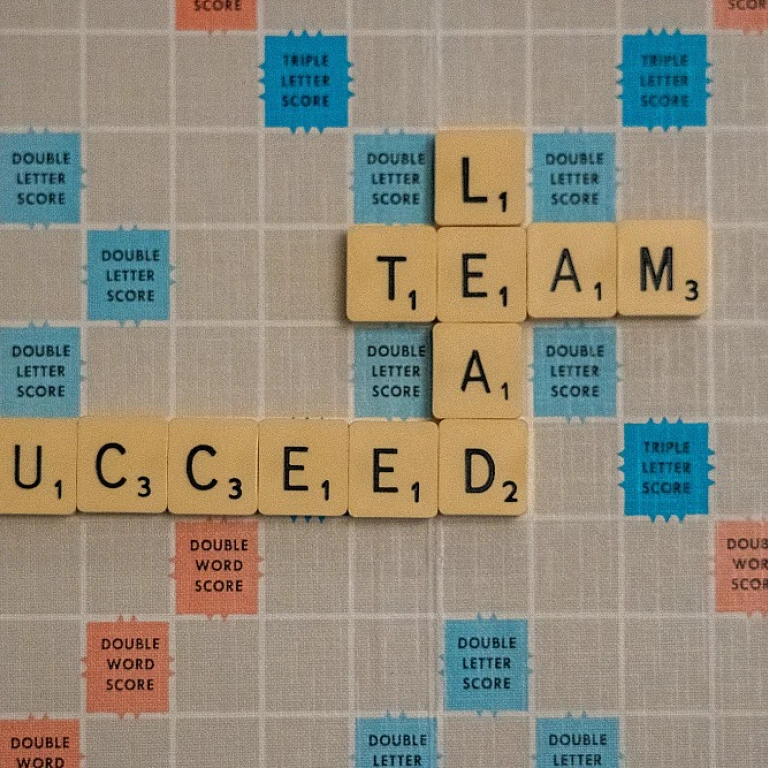
Understanding Prehire Assessments
Delving into the Essence of Assessment Tools
Understanding prehire assessments is pivotal for both employers and candidates as they navigate the hiring process. At its core, a prehire assessment is a structured technique designed to evaluate an applicant's capabilities, skills, and suitability for a role. These assessments play a crucial role in ensuring a successful match between a candidate and job requirements. Traditionally, assessments were limited to pen-and-paper tests. However, with technological advancements, modern assessments have evolved to include job simulations, data entry accuracy tests, and even call center simulations. These tools provide a realistic preview of job performance, enabling candidates to demonstrate their skills in scenarios reflective of actual work environments. Employers deploy these tests not just to streamline hiring but also to enhance candidate experience. For roles such as customer service positions in contact centers, pre hire simulation assessments offer insights into how well candidates perform under pressure or handle data entry tasks. This comprehensive approach ensures that the candidates who proceed are well-equipped to thrive, benefiting both the company and their future team members. Assessments help filter candidates more effectively, reducing the burden on hiring managers and ensuring a smoother process. As companies focus more on the candidate experience, understanding the facets of these tools becomes essential. For those interested in a deeper dive into how prehire assessments can refine candidate experiences, Enhancing Candidate Experience with Effective Prehire Assessments provides intricate details and insights.The Role of Prehire Assessments in Candidate Experience
The Impact of Prehire Assessments on Candidates
Prehire assessments play a crucial role in shaping the candidate experience within the hiring process. When candidates undertake these assessments, their perceptions of the employer, the job, and the overall organization can be significantly influenced. A well-structured assessment not only evaluates the necessary skills and competencies but also leaves a positive impression on candidates, potentially impacting their decision to accept a job offer. Notably, pre employment assessments help employers in identifying the candidates who best fit the job requirements while ensuring a fair evaluation process.
Throughout the candidate journey, the role of assessments is to gauge job performance tendencies, including specific skills like data entry accuracy or customer service capabilities through simulations. For roles in call centers or customer service, job simulation assessments can be particularly effective, offering real-world scenarios that mirror workplace challenges, such as call center simulations. These simulations allow employers to assess how candidates respond to typical work situations, including managing data and executing tasks with precision.
A critical aspect is how the candidates perceive these assessments. If the tests are deemed relevant and directly tied to the job description, it enhances the experience, leaving candidates with a sense of purpose and clarity. However, it’s essential for employers to communicate effectively with candidates about the assessment's purpose to eliminate any potential anxiety or confusion. This communication ensures transparency and sets realistic expectations for the candidates regarding the assessments.
Ultimately, the assessments aim to align the job with the candidates’ capabilities while offering insights into their suitability and potential job satisfaction. Employers who strategically implement these assessments often report more successful hires and reduced turnover rates, proving that improving candidate experience through assessments is a valuable strategy. For further insights on enhancing candidate experience within the recruitment cycle, consider exploring the role of a full-cycle recruiter.
Designing Candidate-Friendly Assessments
Creating an Inviting Assessment Process
When it comes to designing candidate-friendly assessments, the goal is to maintain a balance between evaluating the necessary skills and ensuring a positive experience for the candidate. Each touchpoint with the candidate should reflect the values of the company, ensuring that the process is seamless and respectful of the candidate's time and effort.
Employers can opt for various types of assessments, such as job simulations and data entry tests, to see how a candidate might perform in real-life work scenarios. For roles in call centers and customer service, for instance, using call center simulation assessments can offer a glimpse into a candidate's potential effectiveness and customer handling skills. These assessments not only test the catered abilities but also help assess candidate performance under conditions they would face daily if hired.
Keeping Assessments Manageable
To avoid adding undue stress to the hiring process, it's crucial that assessments are designed to be concise and directly relevant to the job at hand. Unnecessarily lengthy or complex tests can lead to candidate frustration, causing them to drop out of the process. This outcome undermines both the hiring objectives and negatively impacts the candidate experience as a whole.
Employers should consider the use of pre-employment testing tools that provide simulation assessments to gauge potential job performance. These tools need to be intuitive and should allow candidates to demonstrate their competencies effectively without being burdensome. Integrating such pre hire assessments within the recruitment cycle not only refines the candidate experience but also aids in selecting the most qualified candidates job.
Providing Transparency and Guidance
A transparent process helps candidates understand what's expected of them. Clear instructions and guidance during prehire assessments, such as offering a demo or preview of test formats, can alleviate anxiety and enhance candidate confidence. Moreover, offering resources or a contact center for inquiries ensures that any ambiguities regarding the assessments are promptly addressed, fostering a sense of value and respect.
Ultimately, a candidate-friendly approach to assessments is crucial in showcasing an organization as considerate and professional. From job simulations to entry accuracy, by tailoring tests to be relevant and engaging, companies can greatly improve their candidate experience, making them more attractive to top talent.
For more insights on enhancing candidate experience through tailored prehire assessments, click here.
Technology's Impact on Prehire Assessments
Technology's Role in Modernizing Assessments
In today's fast-paced hiring landscape, technology has become a pivotal force in transforming prehire assessments. Employers are increasingly leveraging advanced tools to streamline the hiring process, ensuring a seamless experience for candidates. This shift not only enhances efficiency but also improves the overall candidate experience.
One of the key advancements is the use of job simulations and assessment tests that mimic real-world scenarios. For instance, call centers and customer service roles often utilize simulation assessments to evaluate a candidate's skills in handling customer interactions. These job simulations provide a realistic preview of the work environment, helping candidates understand the job requirements better.
Moreover, technology enables the integration of data-driven insights into the assessment process. By analyzing data from various assessments, employers can make informed decisions about a candidate's job performance potential. This approach not only aids in assessing candidates more accurately but also ensures that the hiring process is fair and unbiased.
Enhancing Candidate Engagement Through Technology
Another significant impact of technology is the improvement in communication and feedback mechanisms during assessments. Automated systems can provide instant feedback to candidates, keeping them engaged and informed throughout the hiring process. This transparency helps in building trust and enhances the overall candidate experience.
Furthermore, technology facilitates the creation of candidate-friendly assessments. By offering flexible testing options, such as remote assessments and mobile-friendly platforms, candidates can complete assessments at their convenience. This flexibility is particularly beneficial for candidates who are balancing multiple job applications or have other commitments.
In conclusion, the integration of technology in prehire assessments not only streamlines the hiring process but also significantly enhances the candidate experience. By adopting modern tools and techniques, employers can ensure that their assessments are efficient, engaging, and effective in identifying the right talent.
Feedback and Communication During Assessments
Ensuring Clear Communication and Constructive Feedback
In the realm of prehire assessments, effective communication and feedback are pivotal in shaping a positive candidate experience. Candidates often find themselves navigating through various stages of the hiring process, from initial job simulations to detailed assessment tests. Ensuring they are well-informed at each step can significantly enhance their perception of the employer.
Clear communication begins with setting expectations. Employers should provide candidates with a comprehensive overview of what the assessments entail. This includes the types of tests, such as data entry accuracy or customer service simulations, and the skills being evaluated. By doing so, candidates can better prepare themselves, reducing anxiety and improving performance.
Feedback: A Two-Way Street
Feedback during the assessment process should not be a one-sided affair. While it is crucial for candidates to receive constructive feedback on their performance, employers can also benefit from candidates' insights. Encouraging candidates to share their experiences can provide valuable data to refine the assessments further. This two-way communication fosters a sense of collaboration and respect, enhancing the overall candidate experience.
Moreover, timely feedback is essential. Candidates should not be left in the dark about their progress or results. Whether they are moving forward in the hiring process or not, providing feedback promptly helps maintain a positive relationship. It also reflects the employer's commitment to transparency and respect for the candidate's time and effort.
Leveraging Technology for Better Communication
Technology plays a crucial role in facilitating effective communication and feedback. Automated systems can ensure that candidates receive timely updates and feedback, reducing the burden on hiring teams. Additionally, these systems can be tailored to provide personalized feedback, enhancing the candidate's understanding of their performance and areas for improvement.
In conclusion, clear communication and constructive feedback are integral to a successful candidate experience during prehire assessments. By prioritizing these elements, employers can not only improve the quality of hire but also build a positive reputation in the competitive job market.
Measuring the Success of Prehire Assessments
Evaluating the Effectiveness of Prehire Assessments
Assessing the success of prehire assessments is crucial for ensuring they are a beneficial part of the hiring process and provide a positive experience for candidates. Evaluating effectiveness involves several key steps:
- Data Analysis: Employers can analyze data results from assessments to determine their predictive validity regarding job performance and skills application. For example, simulation assessments used in customer service roles, like call center job simulations, can reveal candidates' abilities to handle real-life scenarios effectively.
- Candidate Feedback: Gathering feedback from candidates about their assessment experience can highlight areas of improvement. Surveys can provide insights on aspects like the clarity of instructions and the relevance of questions in reflecting job responsibilities.
- Hiring Outcomes: Comparing the performance of candidates hired through prehire assessments with those who did not undergo such tests can determine the overall impact on entry accuracy and customer service skills in contact centers.
- Consistency Check: Regularly reviewing assessments for fairness and adverse impact is necessary to prevent any biased outcomes. Employers should ensure that their assessments do not inadvertently disadvantage certain groups (for further insights, read about the hidden effects of adverse impact).
- Technology Integration: Utilizing technology for simulation and data entry ensures efficiency in assessment delivery and scoring, enhancing reliability and consistency across the hiring process.
By continuously measuring and refining prehire assessments, employers can ensure they remain a vital tool in identifying qualified candidates, enhancing their experience, and ultimately contributing to a successful hiring process.













